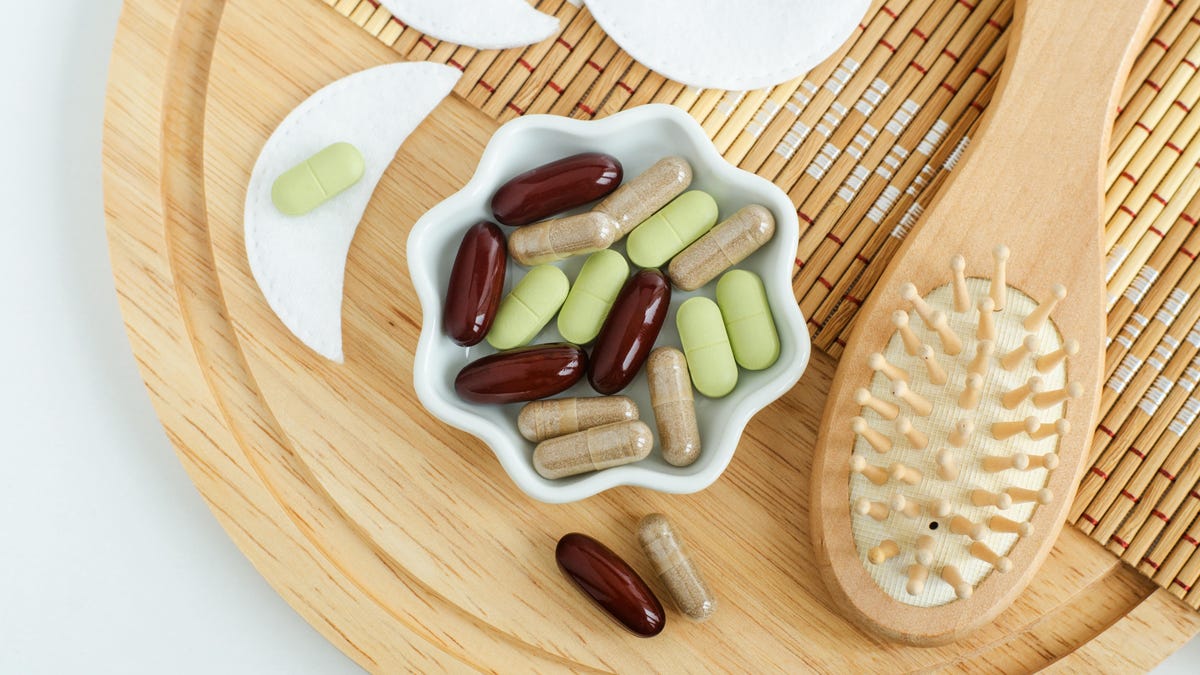Unlock the Secret to Lustrous Locks: 7 Essential Vitamins for Healthy Hair
When it comes to achieving beautiful, healthy hair, many people often overlook the importance of nutrition. While shampoos, conditioners, and styling products can enhance the appearance of our hair, the real magic often lies beneath the surface—in the vitamins and nutrients we provide our bodies. This article explores the transformative power of vitamins that can enhance your hair’s health and appearance. By unlocking the secrets of these essential nutrients, you can pave the way for stronger, shinier locks.
Why Vitamins Matter for Hair Health
Our hair is a reflection of our overall health, and adequate nutrition plays a pivotal role in its condition. Hair is primarily made up of a protein called keratin, and to produce this protein effectively, our bodies require a variety of vitamins and minerals. A deficiency in these essential nutrients can lead to hair that is weak, brittle, and prone to breakage. Let’s dive into the seven essential vitamins that can help unlock the secret to lustrous locks.
1. Vitamin A: The Foundation of Healthy Hair
Vitamin A is crucial for cell growth and the maintenance of healthy tissues, including those in our hair. This vitamin helps produce sebum, the natural oil that keeps our scalp and hair moisturized. Without sufficient vitamin A, hair can become dry and brittle.
- Sources: Carrots, sweet potatoes, spinach, and kale are excellent sources of vitamin A.
- Recommended Intake: The daily recommended intake for adults is 900 micrograms for men and 700 micrograms for women.
2. B-Vitamins: The Energy Boosters
B-vitamins, particularly B7 (biotin), are well-known for their role in promoting hair growth. Biotin is often touted as a miracle worker for hair health, and while it’s not a magic pill, it does play an essential role in the production of keratin. Other B-vitamins, such as B5 (pantothenic acid), can help improve hair thickness and shine.
- Sources: Whole grains, eggs, meat, fish, and leafy greens are rich in B-vitamins.
- Recommended Intake: The recommended dietary allowance varies by specific B-vitamin but generally ranges from several micrograms to milligrams.
3. Vitamin C: The Antioxidant Powerhouse
Vitamin C is not only essential for immune function but also plays a vital role in the health of your hair. It helps in the production of collagen, a protein that strengthens hair and prevents breakage. Additionally, vitamin C acts as an antioxidant, combating free radicals that can damage hair follicles.
- Sources: Citrus fruits, strawberries, kiwi, and bell peppers are packed with vitamin C.
- Recommended Intake: The daily recommended intake is 90 milligrams for men and 75 milligrams for women.
4. Vitamin D: The Sunshine Vitamin
Vitamin D is essential for many bodily functions, including hair follicle cycling. Research indicates that a deficiency in vitamin D can lead to hair loss. Ensuring you have adequate levels of this vitamin can help promote new hair growth and maintain healthy follicles.
- Sources: Sunshine is the best source, but you can also find vitamin D in fatty fish, fortified foods, and supplements.
- Recommended Intake: The recommended daily allowance is 600 international units (IU) for adults.
5. Vitamin E: The Moisturizer
Vitamin E is known for its moisturizing properties and is often used in hair care products. It helps to improve blood circulation in the scalp and acts as an antioxidant, protecting hair from damage. A healthy scalp is crucial for hair growth, making vitamin E a key player in the quest for lustrous locks.
- Sources: Nuts, seeds, and green leafy vegetables are great sources of vitamin E.
- Recommended Intake: The daily recommended intake is 15 milligrams for adults.
6. Iron: The Essential Mineral
Iron is critical for producing hemoglobin, the protein in red blood cells that carries oxygen to your cells, including those in your scalp and hair follicles. Insufficient iron levels can lead to hair loss and poor hair quality, making it crucial to include this mineral in your diet.
- Sources: Red meat, poultry, lentils, beans, and fortified cereals are rich in iron.
- Recommended Intake: The recommended daily allowance is 8 milligrams for men and 18 milligrams for women.
7. Zinc: The Hair Repairer
Zinc plays a vital role in hair tissue growth and repair. It helps maintain glandular function around hair follicles and can prevent hair loss. A deficiency in zinc may lead to hair shedding and a dull appearance.
- Sources: Oysters, red meat, poultry, beans, and nuts are excellent sources of zinc.
- Recommended Intake: The daily recommended intake is 11 milligrams for men and 8 milligrams for women.
How to Incorporate These Vitamins into Your Diet
Achieving lustrous locks is more than just popping vitamin pills. It requires a balanced and varied diet. Here are some practical tips to ensure you’re getting these essential vitamins:
- Eat a Rainbow: Include a variety of colorful fruits and vegetables in your meals to cover a broad spectrum of vitamins and minerals.
- Focus on Whole Foods: Opt for whole grains, lean proteins, and healthy fats, which are nutrient-dense and beneficial for hair health.
- Stay Hydrated: Water plays a critical role in overall health, including hair health. Ensure you’re drinking enough fluids throughout the day.
- Consider Supplements: If you have dietary restrictions or find it challenging to meet your nutritional needs, consult with a healthcare provider about supplements.
Conclusion
Unlocking the secret to lustrous locks involves more than just external treatments; it begins with nourishing your body from the inside out. By incorporating these seven essential vitamins into your diet, you can significantly improve your hair’s health and appearance. Remember, patience is key—healthy hair takes time to grow and flourish. So, eat well, stay hydrated, and embrace the journey to beautiful, vibrant hair.
See more WebMD Network



